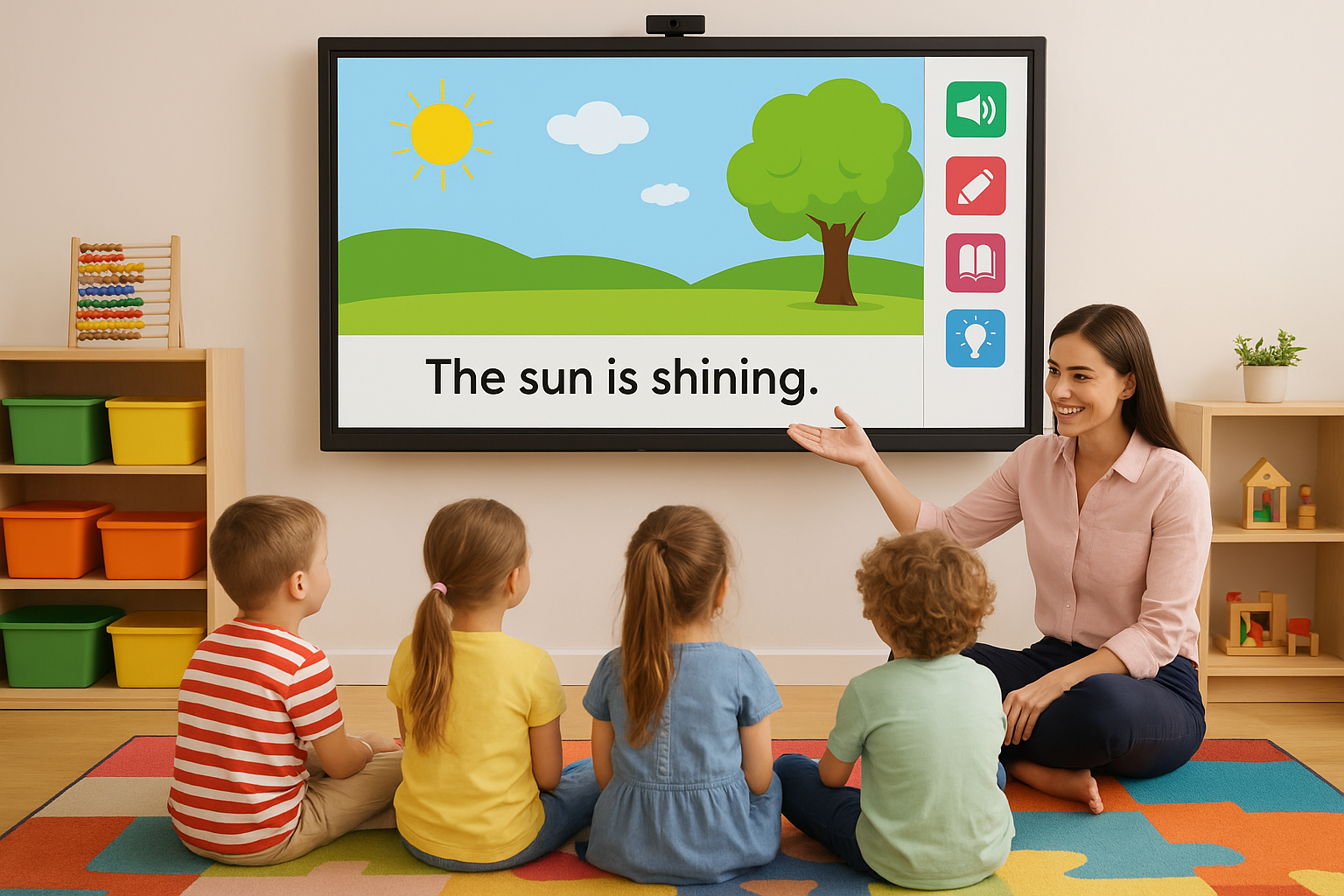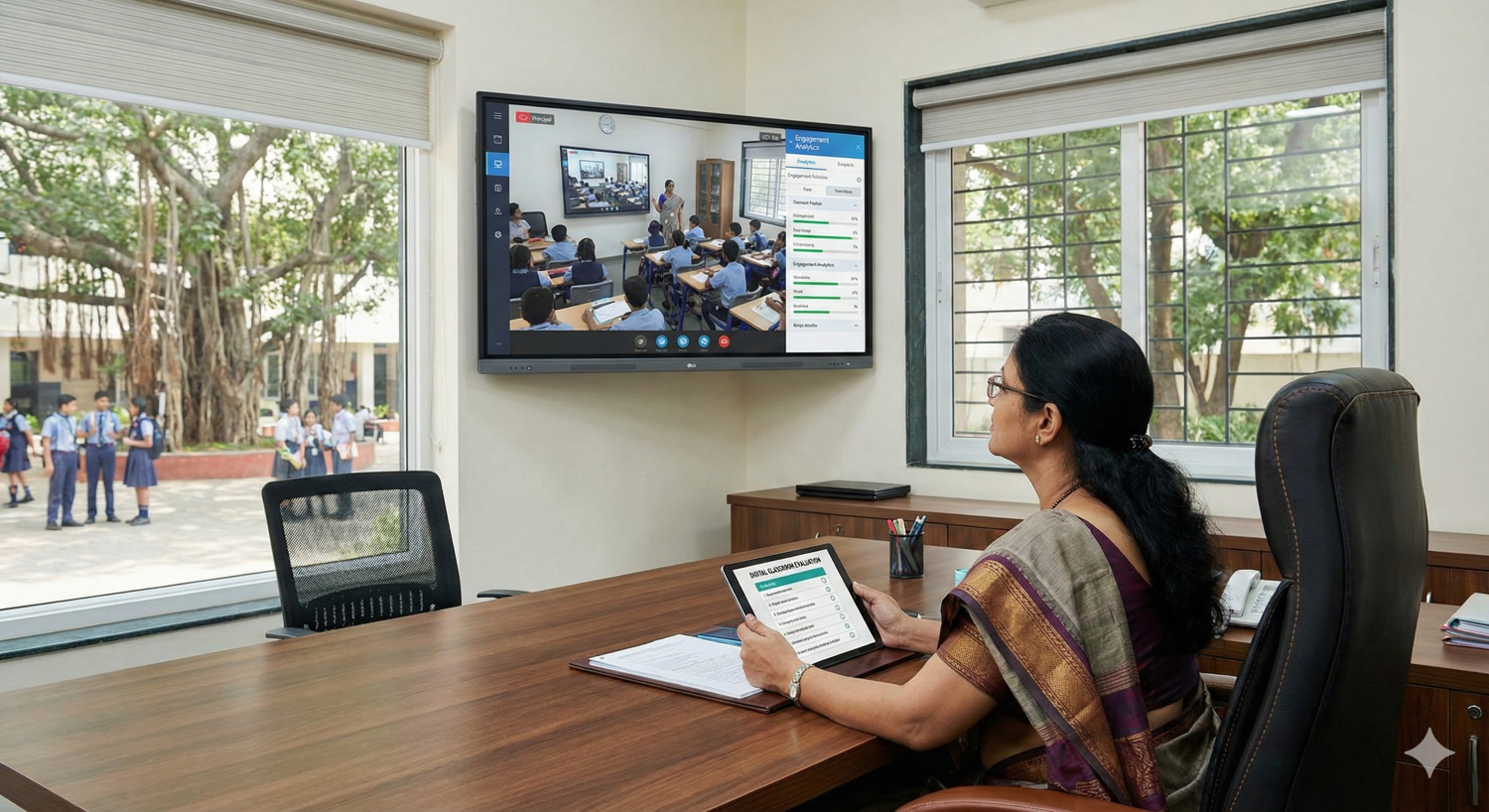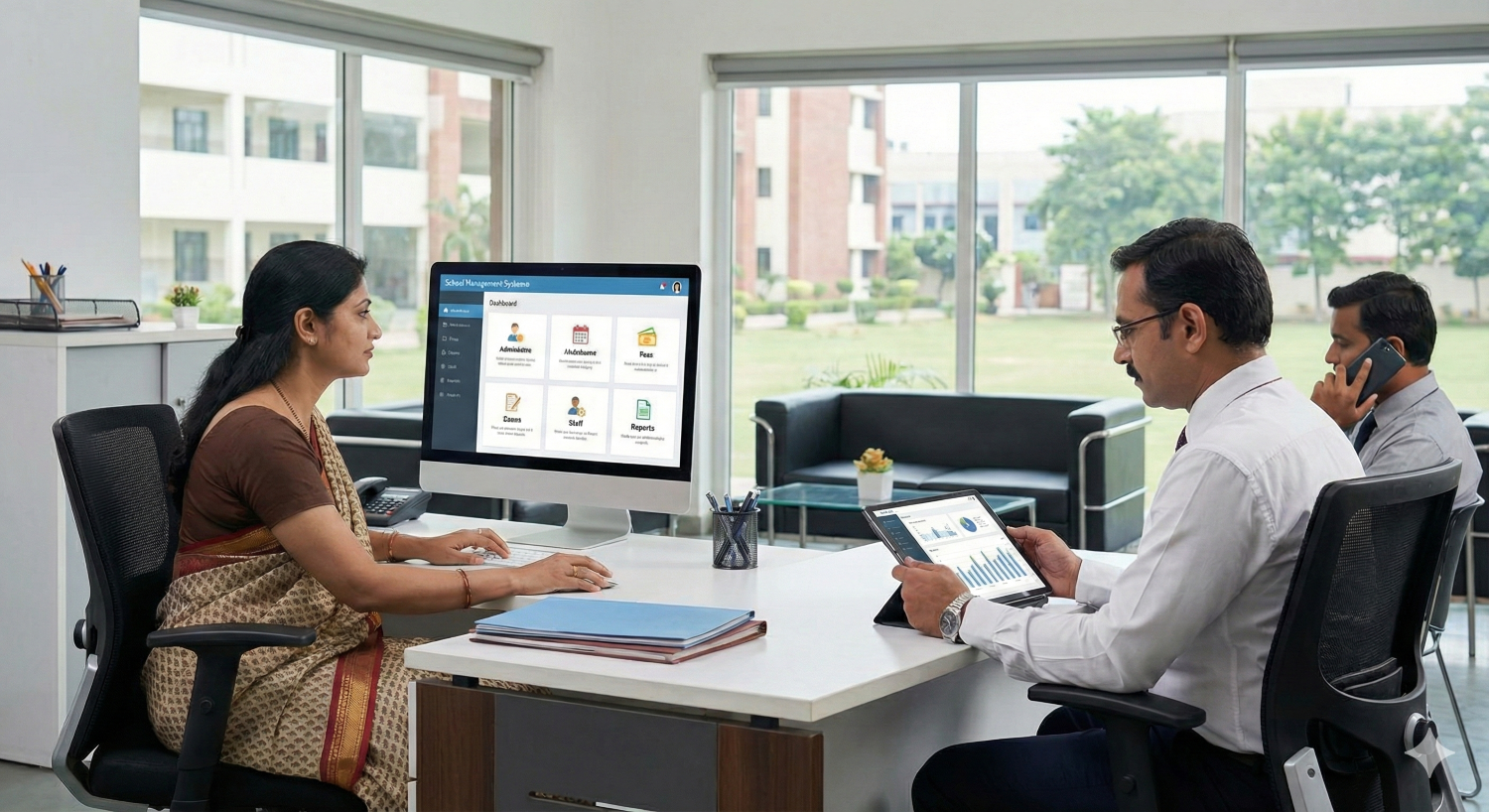Roombr Digital Classroom for Kindergarten: Smart, Safe & Playful

Kindergarten and playschool educators look for three things: safe learning, joyful play, and clear proof of progress. A purpose-built digital classroom delivers all three. Below is a practical, purchase-ready guide that shows how Roombr’s all-in-one smart classroom solution turns play into learning — simply, safely and measurably.
What a Digital Classroom Does for Early Years
Young children learn with voice, movement and touch. The right tech should support those actions. It must be simple to use. It must be child-safe. Roombr Digital Classroom combines hardware and classroom software so teachers can lead, not fiddle. Key benefits are immediate. Teachers get voice activities, big interactive surfaces for drawing, built-in recording for parents, and low-effort games that reinforce letters and numbers.
Features of Smart Classroom that Matter for Kindergarten (And Why)

Below are the features schools ask for first. Each one maps directly to early literacy, numeracy or social development.
1. Audio-Based Learning & Voice Activities
With its built-in microphone and high-quality speakers, teachers can easily lead sing-alongs, echo games, and call-and-response activities, no additional equipment needed. These activities boost phonics and listening stamina. They are low-prep and work for whole-class sessions.
2. Interactive Whiteboard With Handwriting Guides
Large, touch-enabled displays support tracing, coloring and early handwriting. Two-line and four-line guides make letter formation simple. Tiny hands can tap, drag and erase. This replaces disposable worksheets and keeps lessons tactile.
3. Photo & Video Recording
Teachers can record storytelling, performances and drawing tasks. Recordings create portfolios for parent review and for tracking progress. Short clips also reduce the time needed for written reports.
4. Remote Teaching & Guest Sessions
Video conferencing opens doors. Puppet shows, storyteller visits, and remote parent participation become classroom routines. That exposure widens children’s experience without travel.
5. Pre-Installed, Age-Appropriate Games & Multi-Player Play
Built-in games focus on letters, numbers and logic. Multi-player modes teach turn-taking and cooperation. Teachers get quick formative checks without tests.
6. Child-Friendly Design and Safety
Durable housing, eye-safe screens and secure mounting keep equipment classroom-proof. Simple cable management and minimal heat reduce hazards.
7. All-In-One Connectivity
Roombr digital classroom solution supports USB, HDMI, Wi-Fi, Bluetooth and audio input. It also accepts gaming controllers and touch pens. It removes the requirement for investing in additional educational tools.
Smart Classroom Design Principles for Playschools
Great tools still need smart placement. Use these smart classroom design tips to keep lessons smooth and safe.
- Child-height interaction. Mount the display so children can reach the canvas comfortably. This invites independent tracing and drawing.
- Clear sightlines. Keep a two-meter zone in front of the screen. Mats help define the gathering space.
- Sound first. Classrooms are noisy. Place the device away from corners that trap echo. Let the mic face the group.
- Lighting and glare. Use soft, even light. Avoid direct windows behind the screen. Eye-safe displays matter for long sessions.
- Cable discipline. Fix power and HDMI runs along walls. Use trunking. Fewer dangling cables means safer play.
- Flexible seating. Low stools or a floor rug allow quick switchovers between stations.
These simple choices turn a good product into a reliable daily routine.
A Day in a Playschool Using Roombr Digital Classroom
Start with a circle time sing-along. The whole class sings while the display shows lyrics and moves. Next, small groups rotate. One group plays a counting game on the interactive whiteboard. Another group paints at a table. Later, a remote storyteller joins for ten minutes. The teacher records a handwriting sample and uploads it to a secure parent portal. Parents get a short clip and a note. The class stays lively. Lessons are visible and shareable.
Practical Procurement Advice for Decision-Makers
When you evaluate vendors, focus on classroom realities. Here’s a short buying checklist you can use at RFP stage:
- All-in-one vs. piecemeal: An integrated system reduces setup time and compatibility issues.
- Durability & warranty: Ask for rugged housing, eye-safe certification, and at least one year of on-site support.
- Teacher onboarding: Choose vendors who provide short, hands-on training and ready-to-use lesson packs.
- Parent sharing & privacy: Verify secure, consent-based sharing and simple export options for photos and videos.
- Connectivity & accessories: Confirm Bluetooth, USB, HDMI, audio input and controller support for group play.
- Classroom fit: Check sightlines, ambient noise control and seating before finalising screen size.
Such checks speed up the process and make it easier for teachers to start using the technology.
Expert Tips that Make Digital Classroom Deployments Succeed
Educators may miss small, practical details. Address these early to increase adoption.
- Start with simple routines. Teachers adopt technology faster when you add one routine at a time. Begin with a daily sing-along. Add recorded storytelling after two weeks.
- Short training works best. Offer two 60-minute hands-on sessions plus one classroom visit. Teachers prefer practice over long manuals.
- Use recordings for reflection. Short video clips help teachers plan the next lesson and make parent conversations concrete. Keep clips under two minutes.
- Design the classroom for movement. Place the interactive display at child height. Ensure groups can gather without crowding.
- Measure what matters. Track weekly tasks completed (sing-alongs, tracing exercises). These simple metrics show adoption faster than test scores.
- Plan for low bandwidth. Store recordings on the device and upload them later when the internet connection improves. This keeps lessons steady during the day.
Why Roombr Digital Classroom Fits Kindergarten Needs
Roombr was designed as an all-in-one classroom device. It converts a wall into a large interactive surface with an IR pen or a dedicated touch display. The box ships classroom-ready. Teachers get preinstalled games and handwriting guides. The hardware includes strong speakers, a built-in mic for voice activities, and easy recording. On the tech side, Roombr supports i5/i7 processors for smooth playback and dual cameras for better recording angles. For procurement teams, that means fewer add-ons and lower long-term cost of ownership compared with piecemeal setups.
Cost Clarity and ROI Considerations
Early years budgets are tight. Look beyond the upfront cost and assess the long-term ownership expenses. An all-in-one, day-one solution saves on installation, compatibility checks and extra training. Ask vendors for digital classroom setup bundles that include training, mounting, and a simple warranty. These packages often reduce unexpected costs and speed up classroom adoption — which is the real ROI.
Quick Checklist
- Built-in mic & speakers for voice activities
- Durable, eye-safe interactive display with handwriting guides
- Photo/video recording and secure parent sharing
- Pre-installed, age-appropriate games with multi-player mode
- Simple on-site teacher training and warranty support
- USB, HDMI, Wi-Fi and Bluetooth connectivity
Ready to See Roombr Digital Classroom in Your Playschool?
If you are shortlisting digital classroom solutions for kindergarten or playschool, see Roombr in action. Book a personalized demo and watch a live sing-along, handwriting activity, and parent-sharing workflow. We’ll also walk through classroom layout and pricing for your school.
Email us at learn@roombr.com or contact us at +91 96866 59444 for any questions. We will be happy to assist you.
Foziya Abuwala
Share
Step Into the future of
Education with Roombr

















